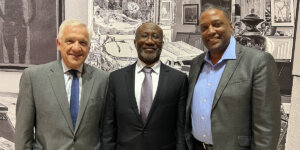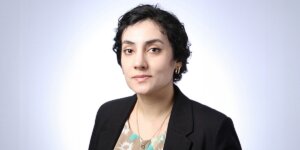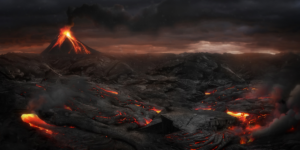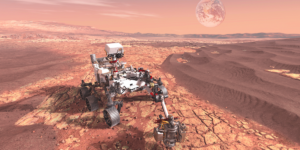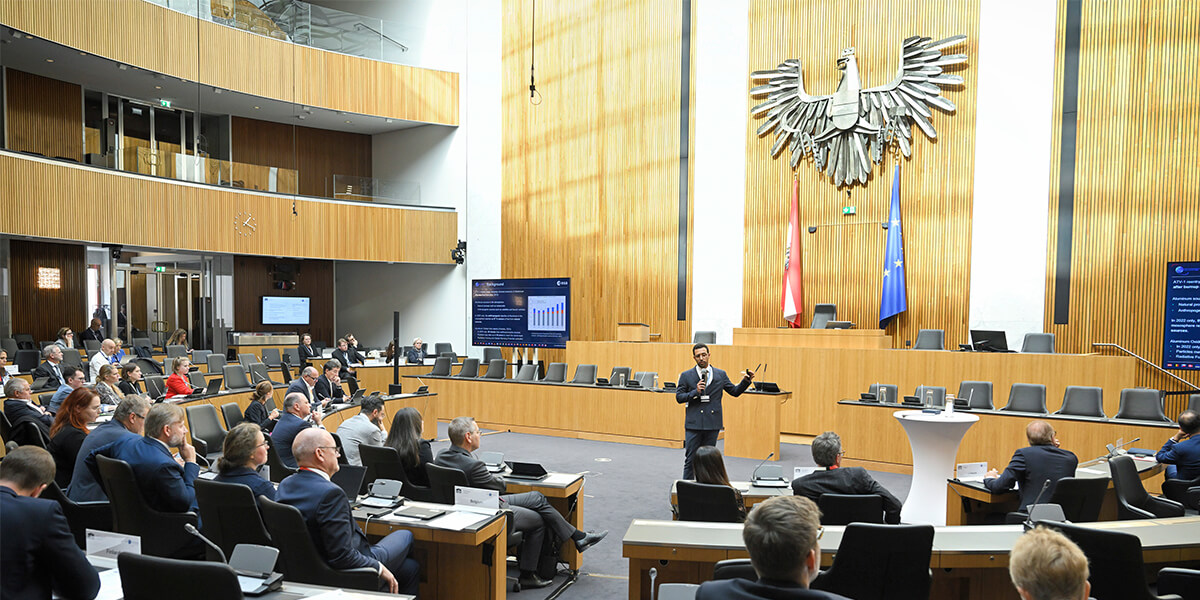
José P. Ferreira presents at the European Interparliamentary Space Conference in Vienna. Photo: Parlamentsdirektion / Anna Rauchenberger
When spacecraft re-enter Earth’s atmosphere at the end of their mission, their fiery demise contributes to an often-overlooked environmental problem: atmospheric pollution. But one young researcher is working to change that.
José P. Ferreira, a Ph.D. student in the USC Department of Astronautical Engineering, was recently awarded the prestigious Space for Sustainability Award from the European Space Agency (ESA) for his pioneering research on the environmental impact of spacecraft re-entry.
Ferreira’s work focuses on better understanding and mitigating the pollutants generated when space vehicles burn up on re-entering the Earth’s atmosphere. “The potential problem of this return to Earth is that we are injecting anthropogenic chemicals into the atmosphere that wouldn’t occur in this concentration naturally,” he explains.

Photo: Parlamentsdirektion / Anna Rauchenberger
In particular, Ferreira is studying the effects of aluminum oxide, a byproduct created when spacecraft aluminum components oxidize. “Aluminum is the most prevailing chemical species in spacecraft and launch vehicle structures,” he notes. “Whenever you burn a spacecraft, the most prevailing species will be aluminum. It will oxidize during re-entry, and we know that aluminum oxides are catalysts for ozone depletion.”
Ferreira’s winning entry for the ESA award proposed a tool that would assess the environmental impact of these materials during the early design phase of space missions. “If we identify upfront that a component or a chemical will be detrimental to the atmosphere, we can either find an alternative or invest in research into more environmentally friendly options,” he says.
By bringing his work to the attention of space agency leaders and policymakers, Ferreira is raising awareness about the overlooked environmental consequences of spaceflight.
“I hope to go through the full cycle of science making, which is theorizing the problem, trying to approach a problem from a computational perspective, and once we figure out the specifics of the problem, then we summarize the requirements and hope that someone is willing to invest in developing a mission to actually measure this,” he explains.
“If we reach the conclusion that this is a significant problem, then there are several bodies that would be responsible for making changes or to pass laws to implement this,” Ferreira says. “On the global level you have the United Nations, which is the first responsible to come up with guidelines, and then it’s up to each independent state to pass on their national law.”
With growing concerns over climate change and the environmental impacts of human activity, the importance of Ferreira’s research cannot be overstated. By tackling this overlooked aspect of spaceflight, he is helping pave the way for a more sustainable future in space exploration.
Published on June 5th, 2024
Last updated on June 6th, 2024




